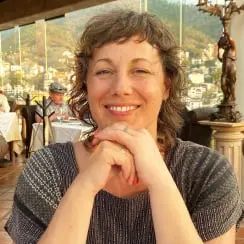 | 1 LU |
 | 1 LU |
Room: D139-140
Audience: Architects
Call to Action: We invite you to take a bold step toward reimagining educational spaces. Reflect on the insights shared and consider how a partnership with a visionary designer, an innovative educator, or a strategic leader could transform your approach to creating learning environments. Here’s a few ideas to initiate this collaborative journey:
Abstract: From 2019 to 2023, the San Francisco Unified School District’s Superintendent’s Innovation Fellowship (SIF) program embarked on redefining educational spaces. This initiative blended leadership, pedagogical innovation, and design to evolve traditional classrooms into dynamic, inclusive, and adaptable learning environments. Our workshop showcases this pioneering effort through a case study, highlighting the co-creation framework supported by partnerships and resources emphasizing instructional and design expertise. Participants will explore the SIF’s foundations, design principles, and the impact of collaborative space transformation on teacher mindsets and instructional practice. We will introduce resources that illustrate how educators translated teacher insights into practical design solutions, encouraging a shift in mindset and teaching practices. The workshop will also focus on the role of student engagement in the co-design process, featuring tools that foster empathy and meet sensory needs, which empowered students and teachers to reimagine their learning spaces together. Through this interactive session, participants will gain an understanding of how to apply these co-design principles and tools to enhance the student experience in their educational environments.
Learning Objectives:

Rebecca is a creative leader who leverages education, community engagement, and human-centered design to create social impact collaboratively with diverse communities. Rebecca currently serves as the Manager for the Future Dining Experience team in the Student Nutrition Services Department at San Francisco Unified School District (SFUSD) where her team focuses on improving the dining experience for students through ongoing innovation, engagement, and communication. She formerly managed programs at SFUSD’s Innovation Lab (iLab) where she partnered closely with schools, teachers, and departments to use liberatory design in service of addressing equity based challenges. In her work at the iLab she supported the launch of a pilot program dedicated to co-creating student centered learning spaces in collaboration with teachers. She holds undergraduate degrees in Cultural Anthropology and East Asian Studies, and a minor in Dance from the University of California, Santa Cruz and a MBA in Design Strategy from California College of the Arts.

Jill has over three decades of innovative experience in school design and change management, deeply rooted in her extensive background as a teacher, leader, and designer. Her expertise in reimagining educational spaces encompasses strategic master planning and innovative furniture designs to support evolving pedagogical needs. Her work, which enhances teacher planning and facilitates pedagogical shifts, extends across the United States and into 24 countries, demonstrating a global impact on improving learning environments. Ackers is dedicated to crafting spaces that foster engaging and effective learning experiences, leveraging her understanding of the interplay between educational practices and spatial design.

Annemarie designs beautiful school classrooms that support 21st century learning by providing flexible furniture options, centering student needs, and leveraging space as an instructional resource. She most recently designed K-12 classrooms for San Francisco Unified School District. Annemarie is the co-founder of AMB Design Labs Inc. and loves to explore how design of space can support our communities diverse needs.
Educational Visioning
Exhibits an understanding of best and next practices related to educational leadership, programming, teaching, learning, planning and facility design. Establishes credibility with educators, community members and design professionals while conceiving and leading a community-based visioning process. Demonstrates the ability to articulate the impact of learning environments on teaching and learning and uses that ability to facilitate a dialogue that uncovers the unique needs and long-range goals of an educational institution and its stakeholders – translating that into an actionable written/graphic program of requirements for the design practitioner.